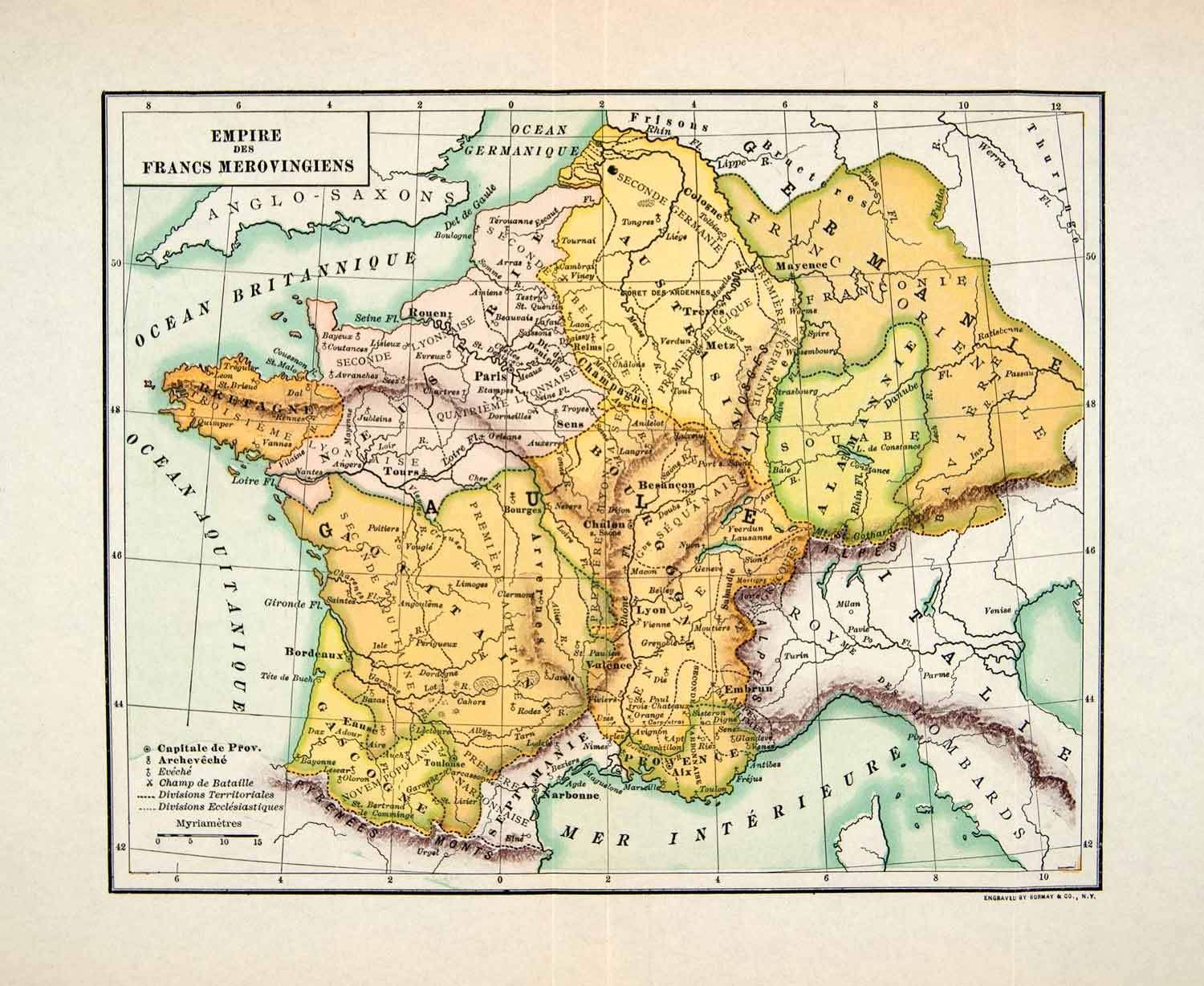Ik ben Powers and Thrones: A New History of the Middle Ages aan het lezen, en dat valt wel mee, maar aargh ik was té content van Dark Queens om iets anders dan zwaar geïrriteerd te zijn door de manier waarop de Merovingers hier behandeld worden.
Anderhalve bladzijde, blabla les rois fainéants, hopladiejee, gedaan. En ongeveer van hetzelfde laken een broek voor de Visigothen.
Grr. Ik ga toch eens serieus op zoek moeten gaan naar een degelijke geschiedenis van de vroege middeleeuwen.
En nu ben ik al heel wat minder gemotiveerd om verder te lezen, eigenlijk. Pas op, ik ga er mij door slaan hé, maar toch. Zó een boeiende periode op zó weinig bladzijden afhaspelen. Tss.
Het eerste resultaat als ik zoek op de googles is The Oxford Handbook of the Merovingian World. Dat ziet er wel iets uit, alvast qua lengte. Rap de intro nagelezen, en jawel: dat ziet er nu al helemaal mijn ding uit.
[…] the Merovingian era can no longer be confined to activities that transpired among Gallo-Romans and Franks and to the dynastic history of the Merovingians. Far from being isolated from the world around it, the Merovingian elite, through the exchange of goods and ideas, their letters, laws, culture, and religion, as well as through military actions and familial alliances, sat at the center of an intensely connected world. From the Byzantine-controlled territories to the south and east, to the politically fragmented lands to the north (including the British Isles and Ireland), the Merovingian kings and their peoples touched the peoples and cultures around them—sometimes in bonds of amity and exchange, sometimes (as in the case of the Byzantine emperors) as wary allies, and sometimes as hegemonic overlords. Their place in the post-Roman world was not always secure, as may be seen in the case of Clovis’s competition with Theoderic for Byzantine titles and accolades in the early sixth century […] However, their footprint was large, and they interacted with political entities on every side. We are now learning that trade, even if indirect, extended the reach of the inhabitants of the Merovingian kingdoms even further, as far afield as Sri Lanka, the Indian Ocean, and the Red Sea […] The world of the Merovingians was intrinsically connected to contemporary developments not just among the Burgundians, the Visigoths, and the Alamanni with whom they shared and contested borders […] but also among the Byzantines, Ostrogoths, Lombards, Thuringians, Avars, Bavarians, Anglo-Saxons, Frisians, and the Irish […], peoples who, like the Merovingians, were once viewed in isolation.
Iets verder in de inleiding staat precies wat mij zo zwaar tegenstak in het boek waar ik nu in bezig ben:
It is important to see the Merovingian period as a cultural entity in its own right, and not merely as an era that was “transitioning” between Antiquity and the age of Charlemagne.
Amen.


Reacties
Eén reactie op “Awoert, geschiedenisboek!”
https://www.youtube.com/playlist?list=PL77A337915A76F660
Yale online lectures. Zeer fijne lessenreeks, maar je bent wel een tijdje bezig.